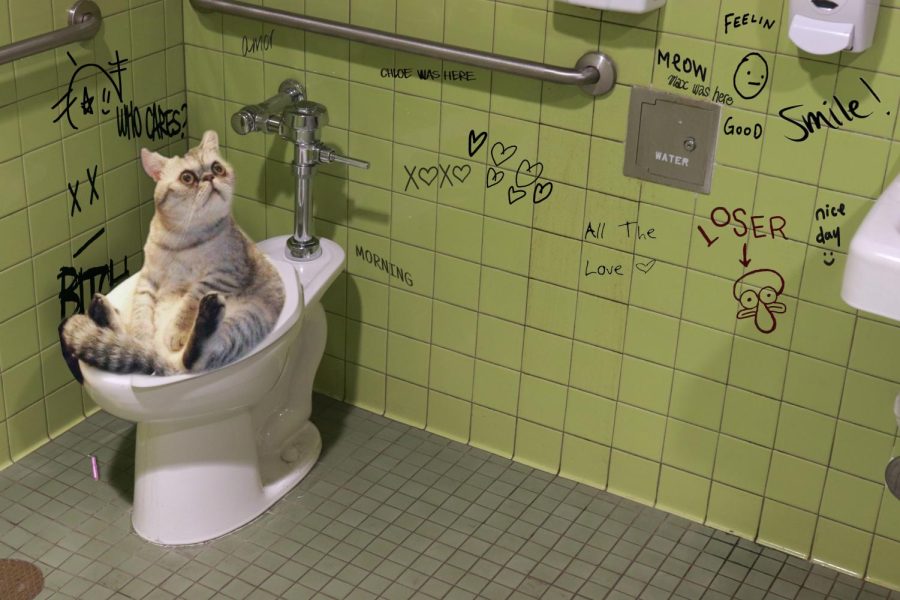Potential Issues of Flushing Cat Poop Down Your Toilet - Safeguard Your Plumbing
Potential Issues of Flushing Cat Poop Down Your Toilet - Safeguard Your Plumbing
Blog Article
What are your thoughts regarding Don’t flush cat feces down the toilet?

Intro
As pet cat proprietors, it's essential to be mindful of exactly how we take care of our feline friends' waste. While it may seem convenient to flush cat poop down the commode, this technique can have destructive effects for both the setting and human wellness.
Alternatives to Flushing
Luckily, there are much safer and more accountable ways to get rid of feline poop. Consider the complying with choices:
1. Scoop and Dispose in Trash
The most typical approach of getting rid of cat poop is to scoop it into a naturally degradable bag and throw it in the garbage. Make sure to make use of a specialized litter scoop and dispose of the waste immediately.
2. Usage Biodegradable Litter
Choose eco-friendly feline litter made from products such as corn or wheat. These clutters are environmentally friendly and can be safely taken care of in the trash.
3. Bury in the Yard
If you have a yard, think about burying feline waste in an assigned location far from veggie yards and water resources. Make sure to dig deep sufficient to avoid contamination of groundwater.
4. Set Up a Pet Waste Disposal System
Purchase an animal garbage disposal system especially created for feline waste. These systems use enzymes to break down the waste, reducing smell and ecological effect.
Health Risks
Along with ecological issues, purging feline waste can also posture health and wellness risks to human beings. Cat feces might include Toxoplasma gondii, a parasite that can trigger toxoplasmosis-- a possibly serious illness, specifically for expecting females and people with weakened immune systems.
Ecological Impact
Purging pet cat poop introduces hazardous pathogens and parasites right into the water system, positioning a considerable danger to aquatic ecosystems. These impurities can negatively affect aquatic life and concession water top quality.
Final thought
Liable pet dog ownership prolongs past supplying food and shelter-- it also involves appropriate waste management. By refraining from flushing feline poop down the bathroom and selecting different disposal methods, we can minimize our environmental impact and secure human health.
Why Can’t I Flush Cat Poop?
It Spreads a Parasite
Cats are frequently infected with a parasite called toxoplasma gondii. The parasite causes an infection called toxoplasmosis. It is usually harmless to cats. The parasite only uses cat poop as a host for its eggs. Otherwise, the cat’s immune system usually keeps the infection at low enough levels to maintain its own health. But it does not stop the develop of eggs. These eggs are tiny and surprisingly tough. They may survive for a year before they begin to grow. But that’s the problem.
Our wastewater system is not designed to deal with toxoplasmosis eggs. Instead, most eggs will flush from your toilet into sewers and wastewater management plants. After the sewage is treated for many other harmful things in it, it is typically released into local rivers, lakes, or oceans. Here, the toxoplasmosis eggs can find new hosts, including starfish, crabs, otters, and many other wildlife. For many, this is a significant risk to their health. Toxoplasmosis can also end up infecting water sources that are important for agriculture, which means our deer, pigs, and sheep can get infected too.
Is There Risk to Humans?
There can be a risk to human life from flushing cat poop down the toilet. If you do so, the parasites from your cat’s poop can end up in shellfish, game animals, or livestock. If this meat is then served raw or undercooked, the people who eat it can get sick.
In fact, according to the CDC, 40 million people in the United States are infected with toxoplasma gondii. They get it from exposure to infected seafood, or from some kind of cat poop contamination, like drinking from a stream that is contaminated or touching anything that has come into contact with cat poop. That includes just cleaning a cat litter box.
Most people who get infected with these parasites will not develop any symptoms. However, for pregnant women or for those with compromised immune systems, the parasite can cause severe health problems.
How to Handle Cat Poop
The best way to handle cat poop is actually to clean the box more often. The eggs that the parasite sheds will not become active until one to five days after the cat poops. That means that if you clean daily, you’re much less likely to come into direct contact with infectious eggs.
That said, always dispose of cat poop in the garbage and not down the toilet. Wash your hands before and after you clean the litter box, and bring the bag of poop right outside to your garbage bins.
https://trenchlesssolutionsusa.com/why-cant-i-flush-cat-poop/

Do you enjoy more info about Can You Flush Cat Poo or Litter Down the Toilet?? Make a review down below. We would be pleased to find out your opinions about this blog. We are looking forward that you visit us again soon. Sharing is good. Helping people is fun. Thank you so much for taking the time to read it.
View Report this page